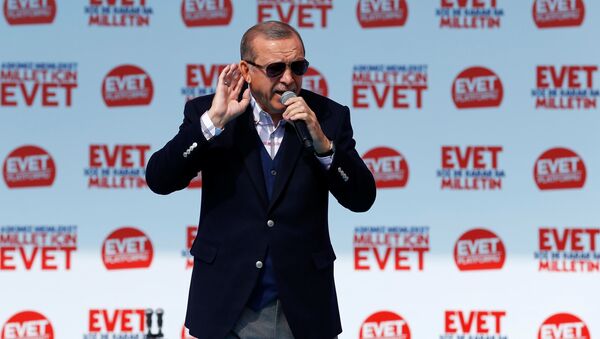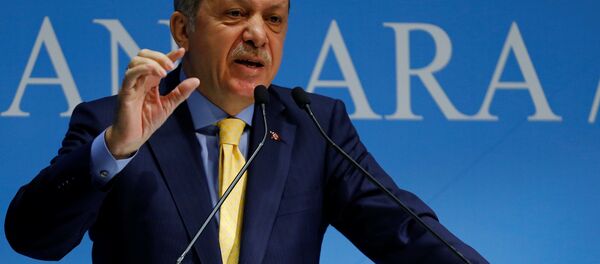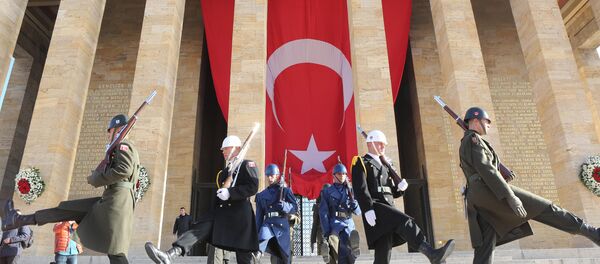The Parliamentary Assembly of the Council of Europe (PACE) voted April 25 to resume monitoring Turkey over "serious concerns" about respect for human rights, democracy and the rule of law in the country.
Speaking to Sputnik Turkey, Oguz Kaan Salici of Turkey's main opposition Republican People's Party (CHP) emphasized that the PACE move reflects the depth of the crisis between Brussels and Ankara.
Following the PACE vote, Turkish Prime Minister Binali Yildirim said Tuesday that Turkish-EU relations have reached a new low.
"Our relations with the European Union have reached the lowest point in recent history. We see the PACE decision as a political one having nothing to do with reality. Turkey will decide, which steps it will take after that," Yildirim said.
Nationalist Movement Party's (MHP) Group Deputy Chairman Erkan Akcay condemned the PACE decision in his interview with Sputnik Turkey.
"This is an absolutely incorrect and biased decision," Akcay said, "I condemn it and see it as a manifestation of hostility towards Turkey."
"The PACE decision [was made] despite the fact that Turkey is actively fighting terrorism, struggling against the Kurdistan Workers' Party [PKK], FETO [Gülenist Terror Organization], and receiving millions of refugees from Syria; [this decision] is groundless and anti-Turkish, and should be reconsidered," he told Sputnik, claiming that the EU is not only hindering Turkey's counter-terrorism struggle but also "condoning the activities of terrorist structures on its territory."
Ankara designated the PKK and the Gulen movement as terrorist organizations.
Asked whether Turkey should reconsider its goal of joining the European Union, Akcay responded: "The erroneous position of Europe is increasingly forcing us to take this step."
"The EU should abandon its policy of imposing its will on Turkey," he added.
For his part, Oguz Kaan Salici noted that the ruling Justice and Development Party (AKP) is itself deepening the rift between Turkey and the EU.
"The actions of the Turkish government recently, the violations of citizens' rights and freedoms observed in the country, the decision to extend the state of emergency led to the cautious and negative perception of Turkey not only by right-wing movements in Europe but also… liberals, Christian democrats, social democrats and green politicians," Salici stressed.
The opposition CHP party representative also called attention to Recep Tayyip Erdogan's statements made following the Turkish constitutional referendum.
"The first statement made by Erdogan after the voting was about the return of the death penalty. In addition, during the entire period of preparation for the referendum, the Turkish leadership used tough rhetoric toward the EU. Keeping this in mind, one can see that the preconditions for the PACE decision were not created just yesterday," Salici told Sputnik.
"It has been clear in advance that the problem in relations between Turkey and the Council of Europe will sooner or later emerge. Turkey tried to postpone this situation, but it has finally happened," he added.
According to Salici, the situation clearly demonstrates the crisis of Turkey's relations "not only with the EU but the whole Western world."
"The AKP government continues to exacerbate tensions with the EU and Europe in general either willingly or unwillingly pushing Turkey toward the East," Salici concluded.





